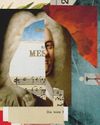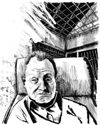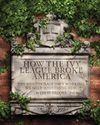
Over the past few decades, many of the unwritten rules of American political life have been discarded. Presidential appointees, once routinely confirmed by the Senate, now spend months in limbo. Signing statements have increased in frequency and scope, as presidents announce which aspects of a law they intend to enforce, and which they intend to ignore. Annual spending bills stall in Congress, requiring short-term extensions or triggering shutdowns.
The system isn’t working. But even as the two parties agree on little else, both still venerate the Constitution. Politicians sing its praises. Public officials and military officers swear their allegiance. Members of Congress keep miniature copies in their pockets. The growing dysfunction of the government seems only to have increased reverence for the document; leading figures on both sides of the aisle routinely call for a return to constitutional principles.
What if this gridlock is not the result of abandoning the Constitution, but the product of flaws inherent in its design?
The history recounted in a recent book on the Constitution’s origins, by Eric Nelson, a political theorist at Harvard, raises that disturbing possibility. In The Royalist Revolution, Nelson argues that the standard narrative of the American Revolution—overthrowing a tyrannical king and replacing him with a representative democracy—is mistaken. Many leaders of the patriot cause actually wanted George III to intervene in their disputes with parliament, to veto the bills it passed, even to assert that he alone had the right to govern the American colonies. In short, they wanted him to rule like a king. When he declined, they revolted.
Bu hikaye The Atlantic dergisinin October 2015 sayısından alınmıştır.
Start your 7-day Magzter GOLD free trial to access thousands of curated premium stories, and 9,000+ magazines and newspapers.
Already a subscriber ? Giriş Yap
Bu hikaye The Atlantic dergisinin October 2015 sayısından alınmıştır.
Start your 7-day Magzter GOLD free trial to access thousands of curated premium stories, and 9,000+ magazines and newspapers.
Already a subscriber? Giriş Yap

The Dark Origins of Impressionism
How the violence and deprivation of war inspired light-filled masterpieces

The Magic Mountain Saved My Life
When I was young and adrift, Thomas Manns novel gave me a sense of purpose. Today, its vision is startlingly relevant.

The Weirdest Hit in History
How Handel's Messiah became Western music's first classic

Culture Critics
Nick Cave Wants to Be Good \"I was just a nasty little guy.\"

ONE FOR THE ROAD
What I ate growing up with the Grateful Dead

Teaching Lucy
She was a superstar of American education. Then she was blamed for the country's literacy crisis. Can Lucy Calkins reclaim her good name?

A BOXER ON DEATH ROW
Iwao Hakamada spent an unprecedented five decades awaiting execution. Each day he woke up unsure whether it would be his last.

HOW THE IVY LEAGUE BROKE AMERICA
THE MERITOCRACY ISN'T WORKING. WE NEED SOMETHING NEW.

Against Type
How Jimmy O Yang became a main character

DISPATCHES
HOW TO BUILD A PALESTINIAN STATE There's still a way.